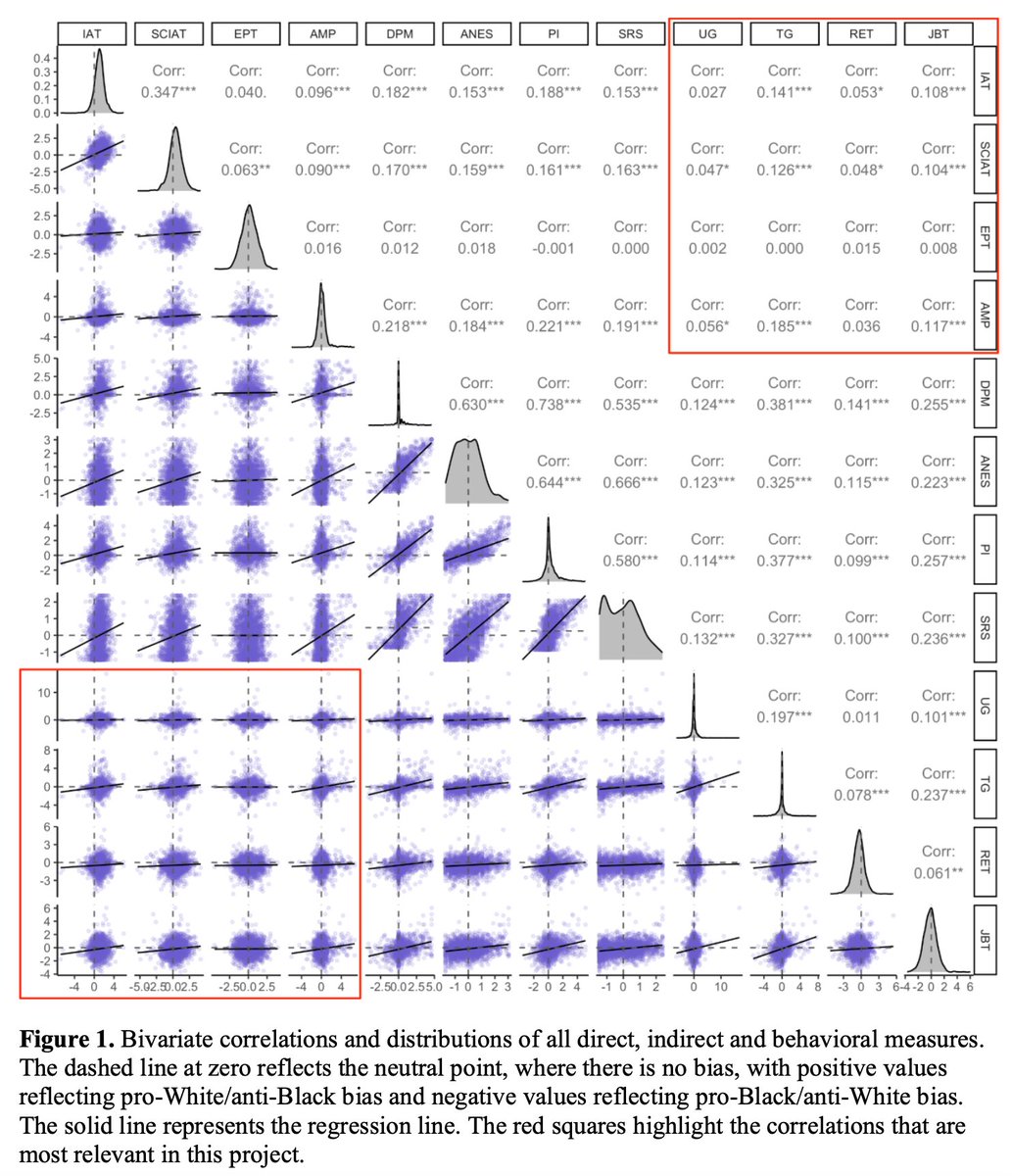
Behavioral scientist. Skeptical of certainty. Director @AdCollabProject & Associate Prof of Psych at New College☀️🌴 Tweet=🤔, not👍
How to get URL link on X (Twitter) App


 2. On one hand, we found that implicit racial bias explained ~2.5% of variance in discriminatory behavior *beyond* explicit racial attitudes, so it is predicting discrimination with at least a small effect
2. On one hand, we found that implicit racial bias explained ~2.5% of variance in discriminatory behavior *beyond* explicit racial attitudes, so it is predicting discrimination with at least a small effect

 2. Men and women differ, on average, in their values. Women are more risk-averse and egalitarian, more concerned with protecting the vulnerable, and more inclined to resolve conflict through social exclusion. When sex ratios shift, cultures shift too.
2. Men and women differ, on average, in their values. Women are more risk-averse and egalitarian, more concerned with protecting the vulnerable, and more inclined to resolve conflict through social exclusion. When sex ratios shift, cultures shift too.


 2. 21 years later, these procedures remain rare. Ceci, Williams, @PsychRabble and I just published an article (also in American Psychologist) explaining why ACs are needed to improve scientific outputs and restore credibility to behavioral science: psycnet.apa.org/doiLanding?doi…
2. 21 years later, these procedures remain rare. Ceci, Williams, @PsychRabble and I just published an article (also in American Psychologist) explaining why ACs are needed to improve scientific outputs and restore credibility to behavioral science: psycnet.apa.org/doiLanding?doi…





 2. This was observed on an individual difference level: When people perceived institutions as politicized, they trusted them less.
2. This was observed on an individual difference level: When people perceived institutions as politicized, they trusted them less.




 2. We suggest that scientists might occasionally engage in motivated research: Their own human desires might influence how they familiarize themselves with data, collect and analyze observations, draw and describe conclusions, and evaluate their peers' research.
2. We suggest that scientists might occasionally engage in motivated research: Their own human desires might influence how they familiarize themselves with data, collect and analyze observations, draw and describe conclusions, and evaluate their peers' research. 




 2. These caricatures or 'perception gaps' are lowest among more moderate people and increase as people are more politically extreme. Which suggests that people who have more accurate views of the political landscape tend not to be extremists.
2. These caricatures or 'perception gaps' are lowest among more moderate people and increase as people are more politically extreme. Which suggests that people who have more accurate views of the political landscape tend not to be extremists. 